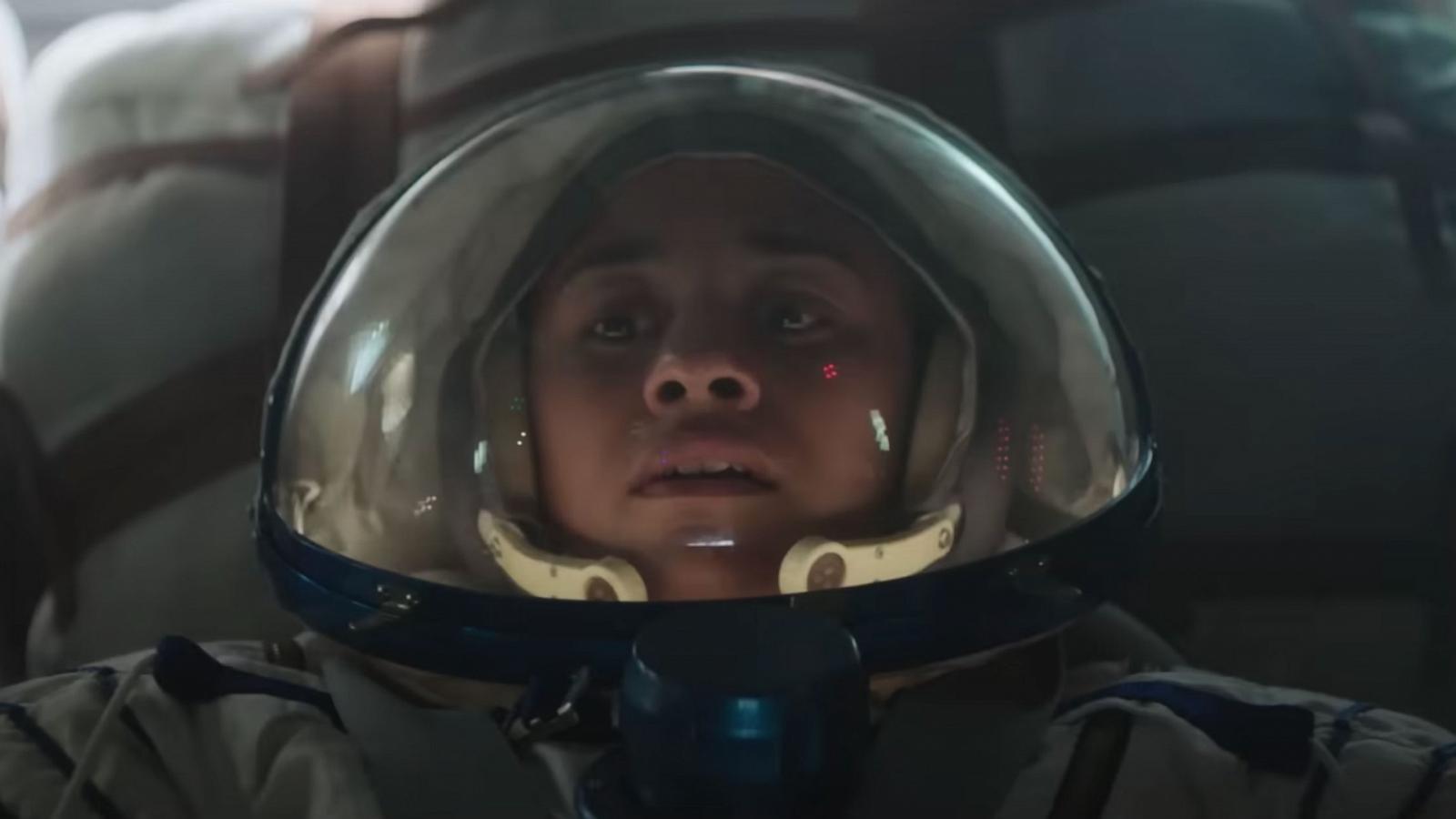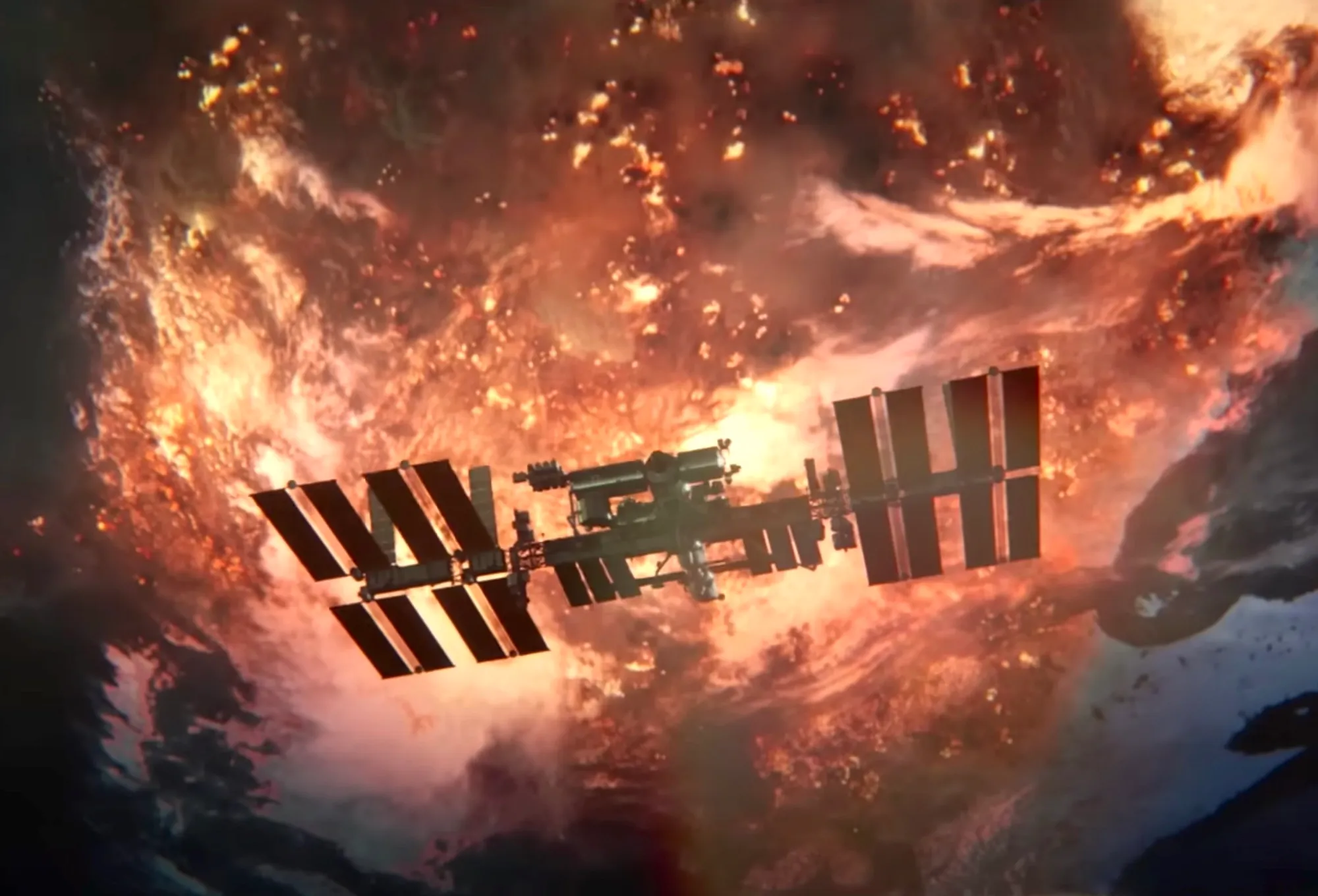We’re only a few weeks into 2024, and we already have a contender for one of the worst titles of the year. It is, however, as boring and unimaginative as the movie itself. The movie is all plot and no story. Even then, what plot there is isn’t much to speak of.
Dull and rote Gabriela Cowperthwaite takes what could have been a gnarly B-movie thriller and turns it into a sleek, vacant melodrama. Nick Shafir’s script is lean and mean and could have been a nice tight pot-boiler. Instead, they churned out this dreck.

Melodrama can be fun, but Cowperthwaite and Shafir need a sense of play or mood. It’s a shame, considering they have a bevy of actors who would be fun to watch in a better or even worse version of I.S.S. Ariana DeBose is more than capable, but as Kira, she’s little more than a cog in the Shafir’s plot mechanics.
The conceit is simple: Russians and Americans unite in international cooperation at the International Space Station. Then nuclear war breaks out on Earth, and both sides send out identical messages, “Take control of the I.S.S. by any means necessary.” It is strange that a group of scientists would be so willing to follow government orders mindlessly. Sticking to stereotypes, the Russians are more eager to comply than the Americans.
I.S.S. is more interested in cheap thrills than logic or nuance, which is fair. However, the thrills are hollow because the characters are so paper-thin that they would need something to hold on even if they weren’t in zero gravityto. The Russian scientists Weronika (Maria Mashkova), Nicholai (Costa Ronin), and Alexey (Pilou Aesaek) are all Russian stereotypes: Somber, serious, and secretive. The Americans fare a little better, but only because they are barely characters that they can’t even fill out the form of trope. Gordon (Chirs Messina) and Christian (John Gallagher Jr.) are strangely forgettable. If not for one of them being married and the other having an affair with Werwonika, they would be interchangeable.
Nick Remy Matthews’s camera feels oddly weighted for a film set in space. I wouldn’t call it static, but it feels chained when it should feel free and unpredictable. Ironically, there’s a moment in the film where Kira is shown the Earth from the space station observatory, and she seems unmoved. It is a feeling that permeates much of Matthews’s framing.
For a movie set inside a space station, there is a curious lack of claustrophobia or feeling of isolation. Matthews and Cowperthwaite are among the rare filmmakers who would put a film in space and not be in awe of its majesty or terrified of the unwieldy possibilities. Instead, feel bored with the whole thing, and having sat through I.S.S, so did I.
However, the design of the space station was fascinating. One of the few highlights of I.S.S. is the way Matthews and Cowperthwaite create a lived-in space for the scientists. Shafir’s script gives us a tour once Kira comes aboard and familiarizes us with the station’s ins and outs while allowing nooks and crannies to exist in the background. It feels less like some idealized erosion of science and more like the practical realities of what a station would look like, cramped with stuff, zero privacy, and a desperate attempt to find space for one’s piece of mind.
If only I.S.S. weren’t such an empty vessel. It looks too polished and lacks the courage of bad taste to be schlock. Cowperthwaite is a middle-of-the-road, nice-looking B-movie that feels internal because Shafir’s script gives them nothing to play with despite having a killer cast. It’s a rancid Cold War melodrama without the updates.

Characters vanish and reappear like Jason Vorhees, seemingly able to transport from part of the station to the next. While we get a sense of the space station, we are never given a sense of the layout, hampering Matthews’s attempt at building suspense. Though Shafir’s script has a built-in ticking clock regarding the station having to lower itself into Earth’s orbit to receive the new scenes, and if they don’t fix it soon, they’ll crash. It’s a hell of a ticking clock, but in Cowperthwaite’s hands, it is utterly meaningless because after they mention the problem, no one seems all that concerned with solving it.
Yet, at times, the actors find ways to find moments that showcase the possibilities of I.S.S. Mashkova’s Werwonika. Her tenacity and sly demeanor make her stand out among her comrades. Soon, she and DeBose’s Kira are joining forces against the men, and for a brief shining moment, I.S.S. becomes legitimately entertaining. DeBose and Mashkova’s screentime together ranks among the film’s best moments, which is a pity considering how few scenes they share.
I.S.S. is a movie where I did a lot of thinking. I thought about Carl Sagan and his infamous poem “Pale Blue Dot” and how I.S.S. is a movie devoid of curiosity or a sense of adventure or exploration. How it’s a dim view of humanity felt woefully hollow and chaste. It was impossible not to think about Ishiro Honda and how, after surviving World War II and the bomb, his movies showed worldwide cooperation to overcome an outside threat.
But mainly, I thought about the wise words of Roger Ebert, “No good movie is too long, and no bad movie is short enough.”
Images courtesy of Bleeker Street
Have strong thoughts about this piece you need to share? Or maybe there’s something else on your mind you’re wanting to talk about with fellow Fandomentals? Head on over to our Community server to join in the conversation!

